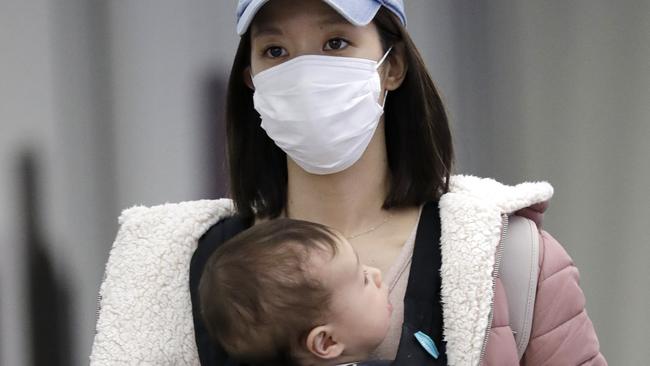Coronavirus: doctors baffled by kids’ great escape
The kids are all right — and no one can say why that’s the case with COVID-19.

The kids are all right — and no one can say why that’s the case with COVID-19.
Scientists are puzzled that the coronavirus appears to spare babies and children when the very young are usually most in harm’s way when a new disease emerges.
At the other end of the spectrum, COVID-19 packs a brutal punch for the elderly, making advanced age the biggest single risk factor for serious illness and death from the virus.
In China, where the virus first emerged, about 2 per cent of those infected die. But of the 3387 deaths reported globally, not one has been of a child under 10 and only one person aged under 20 is known to have succumbed.
Contrast that with the seasonal flu, which is both less infectious and lethal than COVID-19 but acutely more dangerous to children and pregnant women. They rate alongside the elderly, people who are immune-compromised by a pre-existing illness or medical condition and indigenous Australians facing community-wide health challenges as most at risk from the influenza virus.
“My colleagues and I have been discussing this,” said Alex Chandhuri, the director of infectious diseases at Brisbane’s Prince Charles Hospital who admits being mystified by COVID-19’s leniency on children. “There are no clear reasons for it, but that is clearly a phenomenon.”
Other coronaviruses including SARS and MERS, not to mention the common cold, seem to affect children and adults equally. Why not COVID-19?
Initially, experts believed the very young tolerated the new virus better because they had healthier lungs that had been exposed to less cigarette smoke and pollutants than adults had — especially in China, where air pollution is a pressing problem.
But as the disease jumped from continent to continent, infecting nearly 100,000 people in 90 countries, the pattern remained unchanged.
In China, children comprise just 2.4 per cent of all reported cases, and of those, only a fraction — 2.5 per cent — come down with severe symptoms. An even tinier proportion of 0.2 per cent become severely ill, World Health Organisation data shows.
Scientists believe the answer may be the difference between the immune systems of adults and children. As people age, their immune systems weaken, making it harder to fight off illnesses.
It could also be children have the common cold to thank, given their immune systems are supercharged by being bombarded with less-potent coronaviruses from the moment they set foot in a kindergarten or preschool.
“Another theory out there is that children don’t have certain receptors that the (COVID-19) virus binds to,” Dr Chandhuri said. “But I do think overall they are physiologically more resilient than our elderly.”



